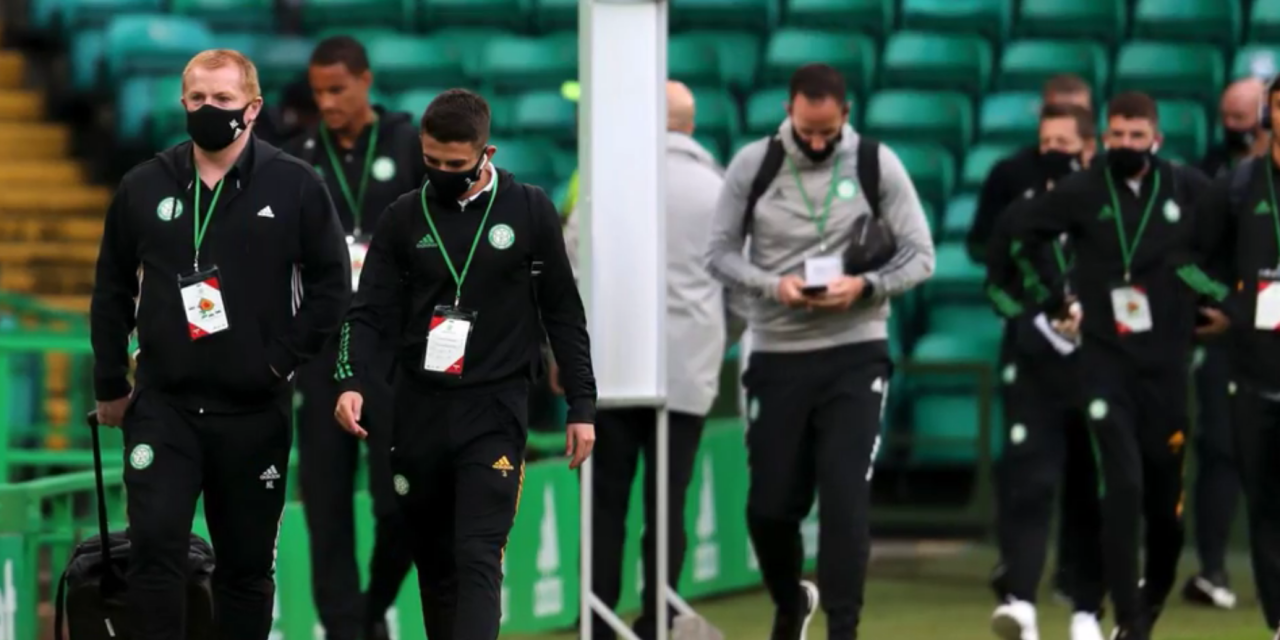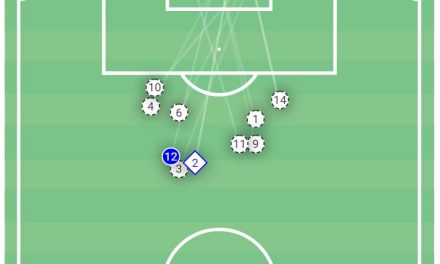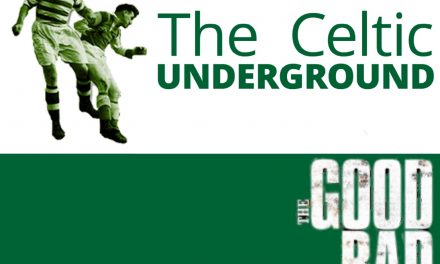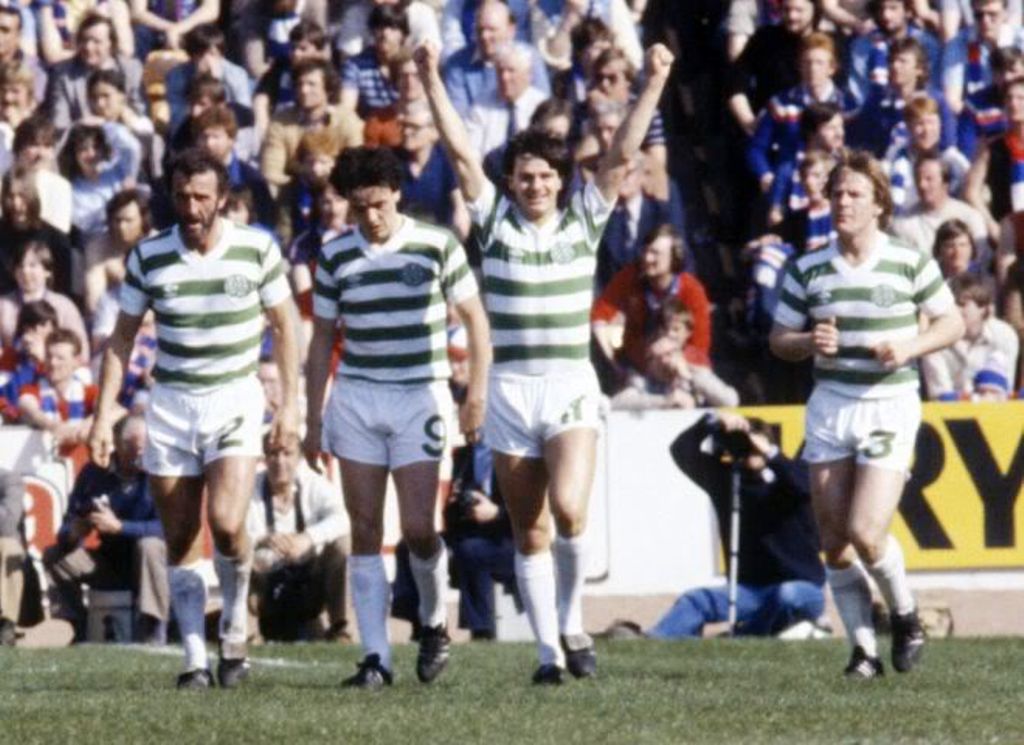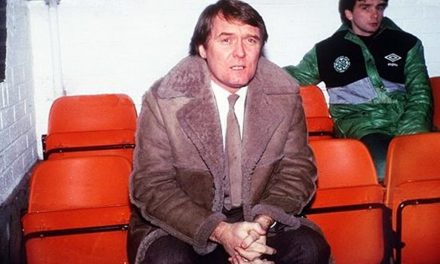One of the benefits of reaching a mature age is that there is seldom anything in life that can surprise you, which you have not experienced before. This applies to Celtic, as well as life in general, and Neil Lennon’s trials and tribulations as Celtic manager this season has certainly brought to mind memories of the past. And not good memories it has to be said.
This season for Celtic has been hugely reminiscent of 1977-78 which was Jock Stein’s last as Celtic manager. Everything that could go wrong in that campaign went wrong. Injuries, loss of form and a string of embarrassing defeats at home and abroad. In the end Celtic couldn’t even manage a place in Europe as four other Scottish teams beat them to it. At the end of that campaign the great Stein abdicated his post and although it was said to be mutual consent the feeling was if he hadn’t moved aside he would have been fired. It was a sad end for such a magnificent Celtic servant.
In May 1991 Billy McNeill came to the end of his tenure as Celtic manager, which was his second spell managing the club. A good second half of the season was not enough to save Billy with his team finishing trophy-less and a new Chief Executive, Terry Cassidy, looking to make his mark my sacking the man who was already regarded as a Celtic legend, both as a player and a manager. A Celtic official leaked the news of McNeill’s sacking to The Sun newspaper and it all became very messy with the Celtic board looking incompetent and Billy not being given the necessary respect he was due when departing.
Fast forward to 1997 when Tommy Burns was ruthlessly sacked by Fergus McCann. Tommy had made great strides in his three seasons as Celtic boss and had improved the side significantly with a whole raft of exciting foreign signings who, in the main had played a fine style of attacking football. McCann was building a new Celtic Park and was desperate to bring success to the club in line with the new stadium. The problem was Rangers were on a roll and when Tommy could not prevent the Ibrox club completing their own version of 9-in-a-row then it spelt the end for him. Tommy was perhaps too emotionally attached and he had aged visibly during his time as Celtic manager. Thus, in the summer of 1997, McCann informed Burns that he was manager no more.
The reason for raising these instances from Celtic history is to compare how the fans reacted to them in comparison to Neil Lennon this season, as Lennon and the Celtic fans endure a similarly painful experience in comparison to Stein in 1978, McNeill in 1991 and Burns in 1997. There was certainly criticism over the course for all of those three men and, from memory, there was common consensus amongst the supporters that time was up for all three of them and that change was required. And yet none of them remotely suffered the level of bile and hostility which has been aimed at Neil Lennon this season by elements of the Celtic support. So what can be the reasons for this?
10-in-a-row. This was to be our season. The season that would see Celtic reach the magical ‘10’ and set a record within Scottish football never to be beaten. A once in a lifetime opportunity that would give Celts’ fans the opportunity of bragging rights over their greatest rivals forever more. In years to come when arguments broke it amongst the rival fans, our reply would be a simple ’10.’ There can be little doubt that this league campaign was seen as the single most important one, in the eyes of Celtic fans, since Wim Jansen’s Celts had stopped Rangers reaching their ’10’ in 1998.
A sense of entitlement. For nine long years Celtic have lorded it over their Glasgow rivals from the south side. We witnessed the demise of the original Rangers, no matter how the Scottish media collude in the illusion that this did not happen. There was a sense of anticipation all summer that this would be THE season. Expectation was that Celtic would be the dominant for force for many years and we now find that in the first sight of any reasonable competition from across the city, Celtic’s challenge melted like the proverbial snow off a dyke. This has been enormously hard for Celtic supporters to accept.
Lockdown. As the dark nights of autumn set in, the gloom coincided with poor Celtic displays and results. As fans sat at home, the feeling of helplessness overcame them as they were not able to take out their frustrations in stadiums across the country. That feeling of isolation festered and ultimately led to resentment. Initially there were protests in person outside Celtic Park but these then escalated to hate campaigns against Neil Lennon when it became clear, in the depth of winter, that he would not resign and that the club would not sack him. Banners appeared at the stadium and at Lennoxtown by faceless individuals and there are even suspicions some of these have been put up by mischievous Rangers fans. No one knows for certain.
Rangers good form. If it wasn’t bad enough that Celtic were playing poorly, Rangers then went on an unbeaten run on a scale that they had never previously enjoyed before. Organised, though not particularly attractive to watch, they did what Celtic could not do. They were more disciplined and made very few individual errors which costs games. They were very fortunate not to be affected by Covid 19, indeed on many occasions they have actually benefitted from it by playing against weakened opposition. However, it would be grudging in the extreme not to acknowledge that Rangers are enjoying an exceptional season. This has only served to make it harder for Celtic fans to accept the mediocre fare they have been offered on their plate this season from October onwards.
Social media. In the past supporters could take out their frustrations during the course of a match and perhaps even after it. They would then depart to their watering holes and discuss with friends and leave it there until the next game. However, in the present day, news is constant and individuals now feel the need to vent their spleens on a continual basis. Twitter especially, can be an unforgiving forum for footballers and football managers. There is no problem with balanced, objective opinion and debate but what Neil Lennon has had to endure has gone beyond what can be described as decent, constructive comment. The ‘Lennon out’ banners on Twitter with the red line across his image is remarkably reminiscent to what Loyalists were putting out against him in Northern Ireland in the recent past. We have gone from ‘We are all Neil Lennon’, with the obligatory face masks, to seeing his image relentlessly insulted on social media. There are also so called supporters groups who relish erecting banners outside the ground in the middle of the night. The club are partly to blame for this element as they should have had their wings clipped long before now. Celtic have created a monster and no longer know how to control it.
For the record, I believe that Neil Lennon’s time is up. A mixture of poor signings, poor team selection, tactics, and man management, mean that my preference is now for a new manager to be put in place for next season. Neil should not take offence at this. Managers are judged on results and football is very much a results driven business. Just as Stein, McNeill and Burns discovered to their cost in previous eras, being a Celtic legend won’t prevent you being sacked when the perception is that results are unacceptable and that a change of direction at the club is needed.
However, Neil Lennon is due the grace of leaving Celtic in a dignified fashion, whenever that time comes. Some Celtic fans need to take a long, hard look at themselves. Lennon was a hate figure in Scottish football from day one, when he first appeared in the Hoops at Dens Park. As player, captain and manager he has inspired Celtic to 10 leagues, 8 Scottish Cups, 3 League Cups plus a European final. We are all feeling severely pained at this difficult time when the ‘10’ has slipped away slowly in front of our eyes, week by week, and we cannot get inside Parkhead to inspire the team with fervour and song. Neil Lennon will depart this summer. This hasn’t been an article written looking for sympathy for Lennon. It’s merely a plea to Celtic supporters to act with decency and stop embarrassing themselves and the club in such a poor fashion.

